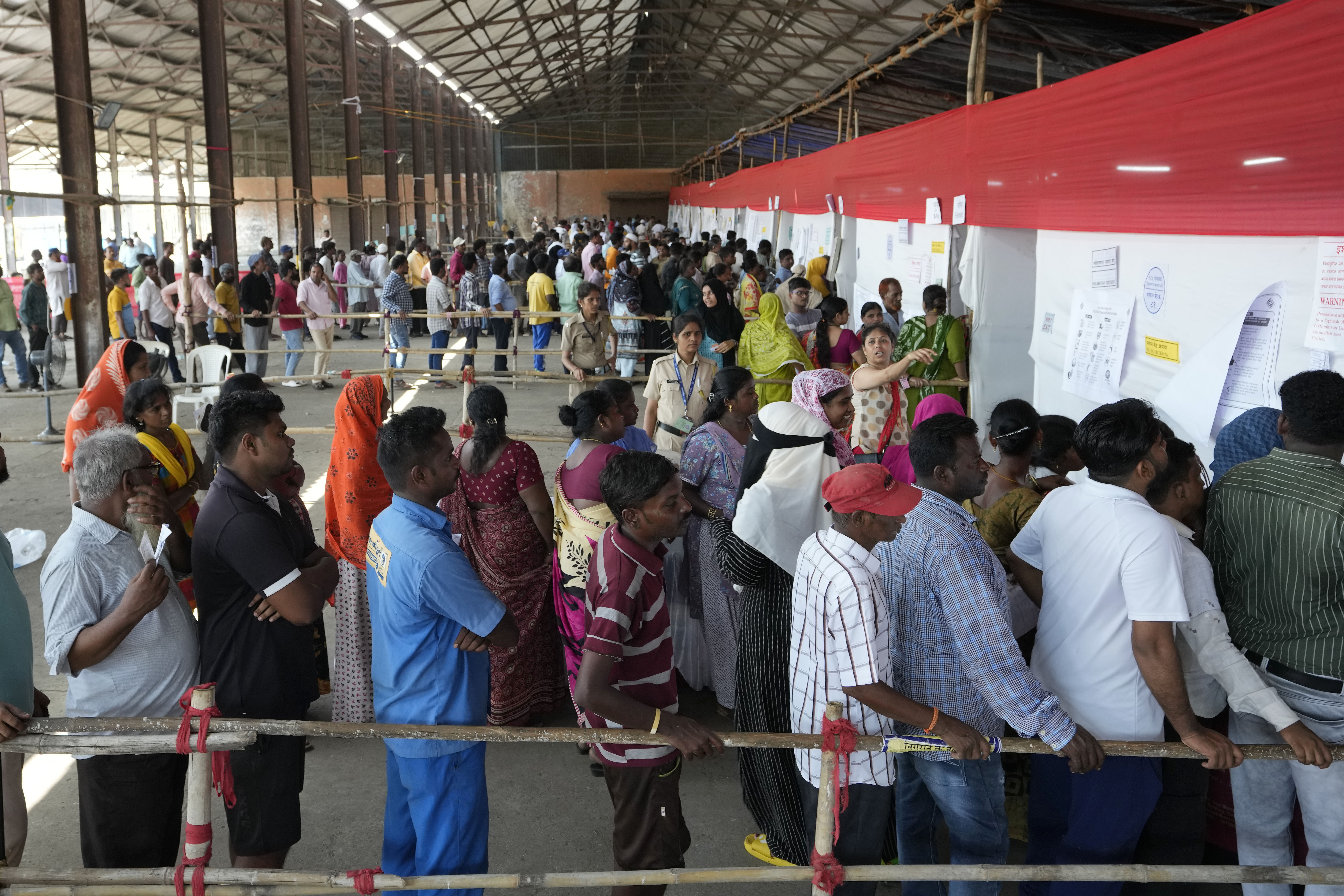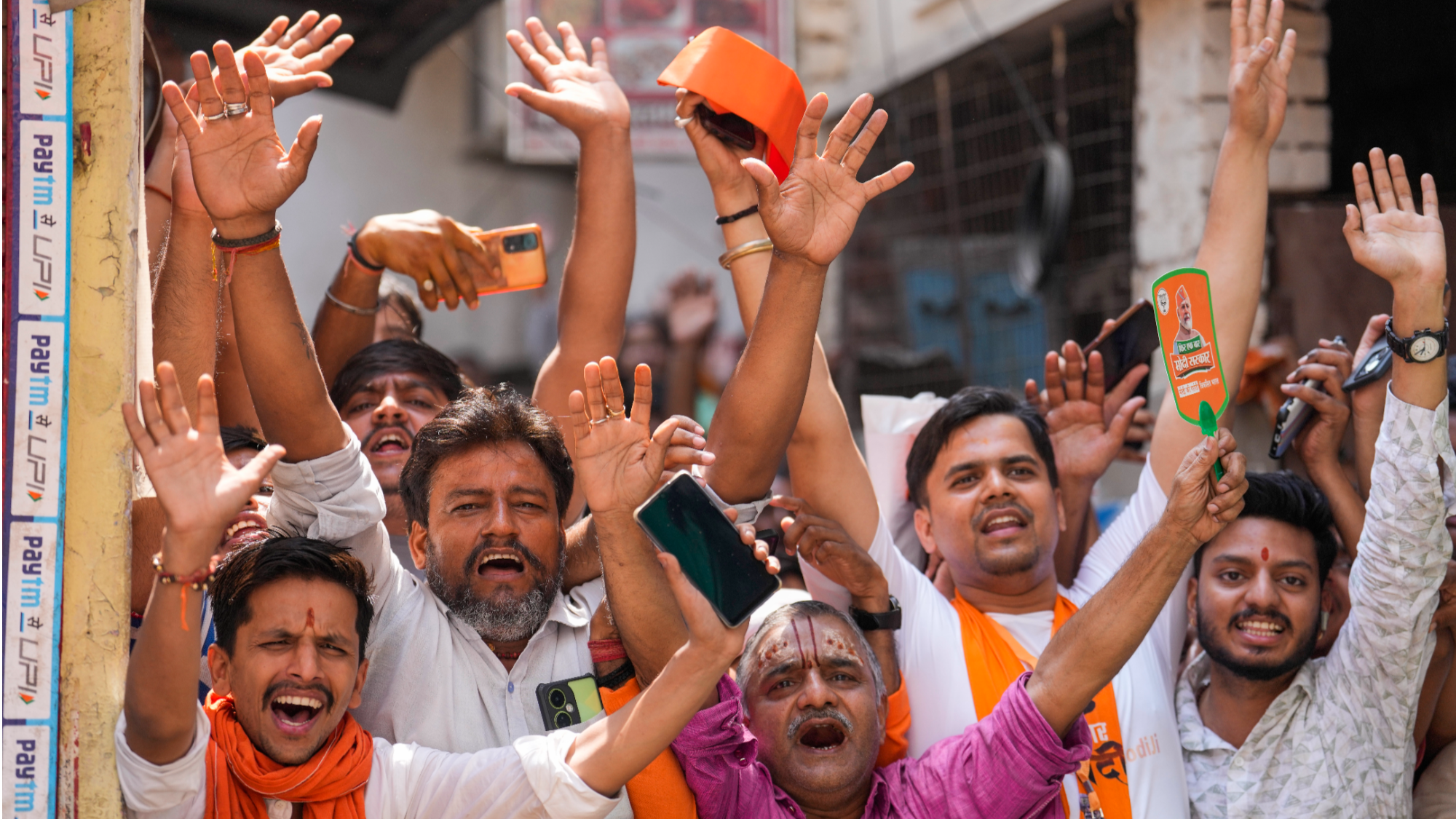
The fifth round of Indian general elections on Tuesday was deemed crucial for the ruling Bharatiya Janata Party (BJP) of Prime Minister Narendra Modi as it comprised some of the party’s strongholds in states where the BJP has been expanding its base since the 2019 general election, according to analysts.
Nearly one million officials were deployed at 94,732 polling stations in the latest election round. Though having the least number of 49 seats on contest among all the seven phases, this round had an eligible voter base of 89.5 million, according to the Election Commission of India, the nation’s independent poll conducting body.
The polling, which began at 7 am, involved seats in the states of Uttar Pradesh (UP), Maharashtra, West Bengal, Bihar, Odisha and Jharkhand, and the Union Territories of Jammu & Kashmir and Ladakh. States of UP, Maharashtra, and West Bengal are key for BJP.
The remaining two phases of the election are scheduled for May 25 and June 1. Counting of votes for all parliamentary constituencies will take place on June 4, and the results will be out the same day
Some top government ministers and opposition leaders were in the fray in the Monday races. The high-profile candidates included Rahul Gandhi, the face of the main opposition Indian National Congress (INC), who contested from Rae Bareli in UP in place of his mother and former party chief Sonia Gandhi.
READ MORE: Indians vote early in fifth phase of polls to avoid scorching heat
Also on the ballot were Indian Defence Ninister Rajnath Singh, who contested from Lucknow, the capital of UP; and Trade Minister Piyush Goyal, who fought from Mumbai, the capital of India’s western Maharashtra state.
Voting was also held in the northern Ayodhya city in UP, where Modi inaugurated a grand Ram temple in January this year on the site of a razed mosque, triggering religious fervor among Hindus across the country — especially in northern and central India.
The BJP had won 62 of UP’s total 80 parliamentary seats in 2019, and the party aims to repeat, or even surpass, that performance in the state this time.
The BJP-led National Democratic Alliance, or NDA, seeking a record third term under Modi, has set a target of winning 400 seats overall in the 2024 election. The ruling alliance is being challenged by the opposition parties, led by the INC, under the banner of the INDIA bloc.

“Major problems like unemployment and inflation are not creating a major impact among the voters’ here. Modi won the hearts of millions of people by inaugurating the much awaited Ram temple,” said Ramesh Tripathi, a resident of Ayodhya.
Modi inaugurated the temple, built on the grounds of a centuries-old mosque and estimated to have cost some $217 million, in a grand event in January, fulfilling a long-standing demand of staunch Hindus.
“Inauguration of the temple (had) an electrifying impact on the masses. It connected the religious sentiment of the masses,” said Sangit Kumar Ragi, a professor in the Department of Political Science, Delhi University.
Thus far, voting for more than three-fourths of India’s 543 parliamentary constituencies (428 seats) has been completed.
READ MORE: India opposition says Modi used spyware on rival Rahul Gandhi
The remaining two phases of the election are scheduled for May 25 and June 1. Counting of votes for all parliamentary constituencies will take place on June 4, and the results will be out the same day.
The fifth phase of the election saw voter turnout of 60.5 percent, India’s state-run broadcaster DD News reported, citing Election Commission data. The first four phases of the election — on April 19, April 26, May 7 and May 13 — recorded voter turnouts of 66.1 percent, 66.7 percent, 61 percent and 67.3 percent, respectively.
Pranat Tudu, a doctor-turned-politician and BJP election candidate from Jhargram parliamentary constituency — a tribal dominated area around 180 km from Kolkata, the capital of West Bengal state — said common people, cutting across caste, creed and religion, have been casting their votes in large numbers in favor of BJP because of welfare schemes initiated and implemented by Modi over the past ten years.
In a post on social media platform X on May 20, Modi urged women and young voters to vote in large numbers.

In an interview to a news agency late on May 19, Modi asserted that the BJP will emerge as the single largest party in the south, and remained confident that his NDA alliance will cross 400 seats overall this time when election results come out on June 4.
The writer is a freelance journalist for China Daily.


